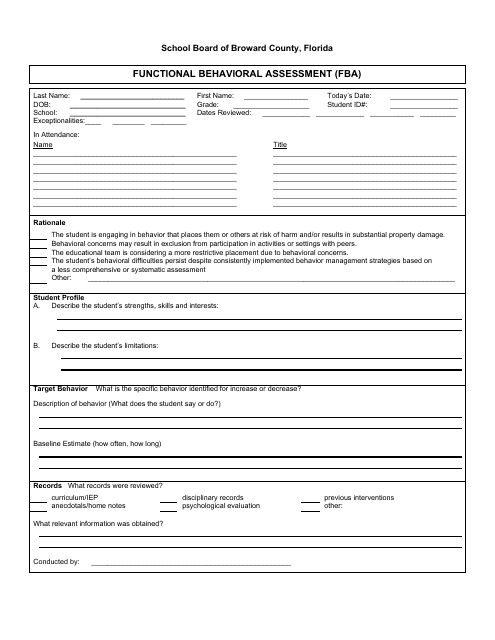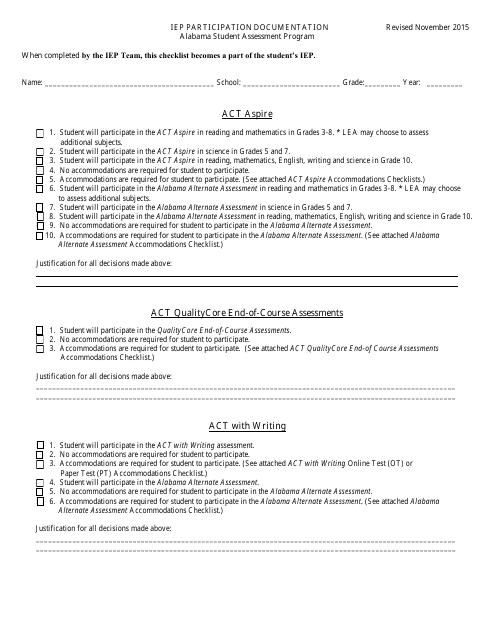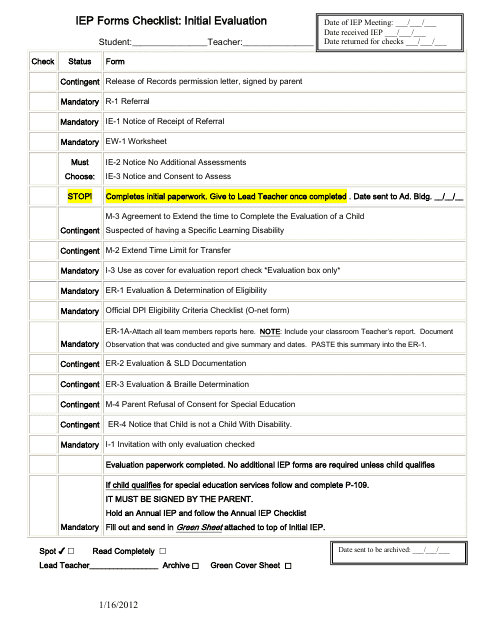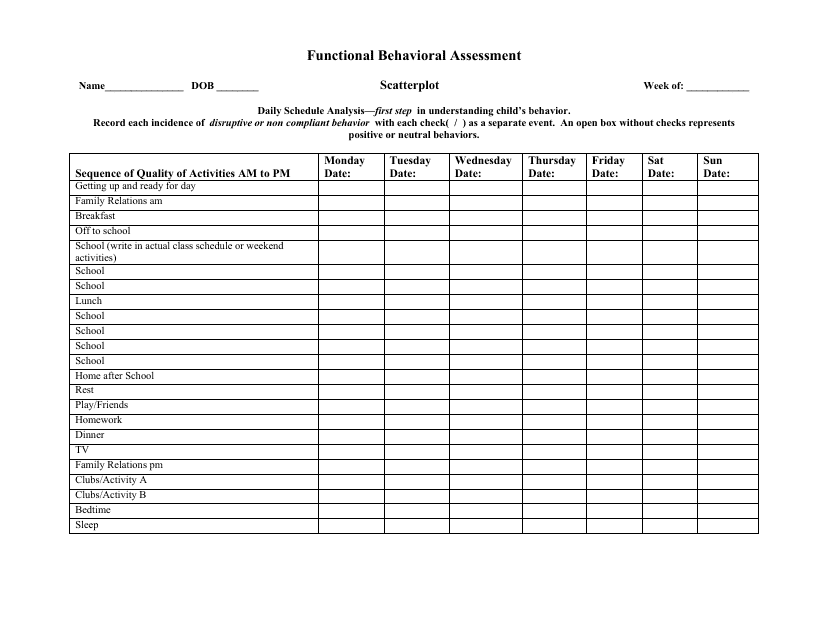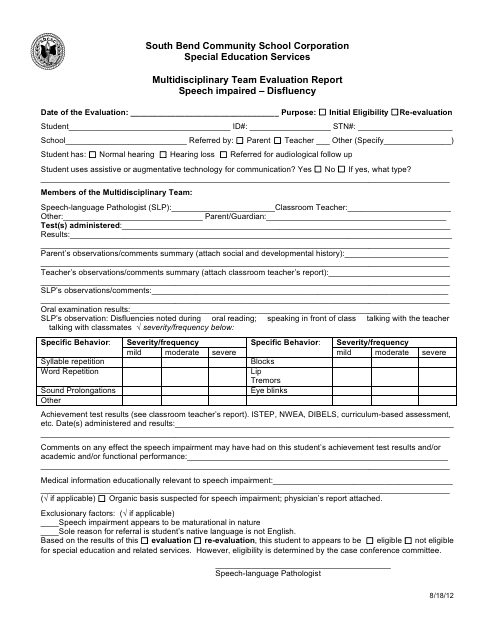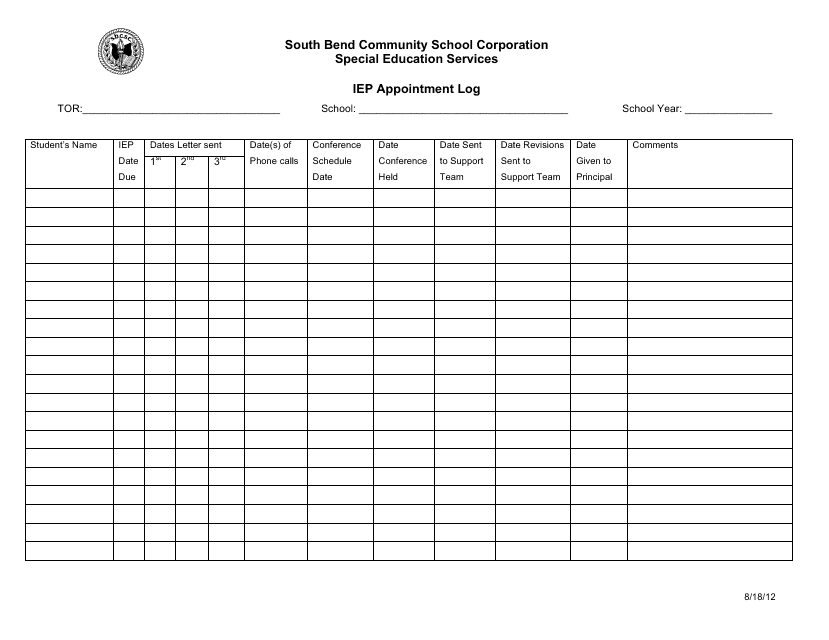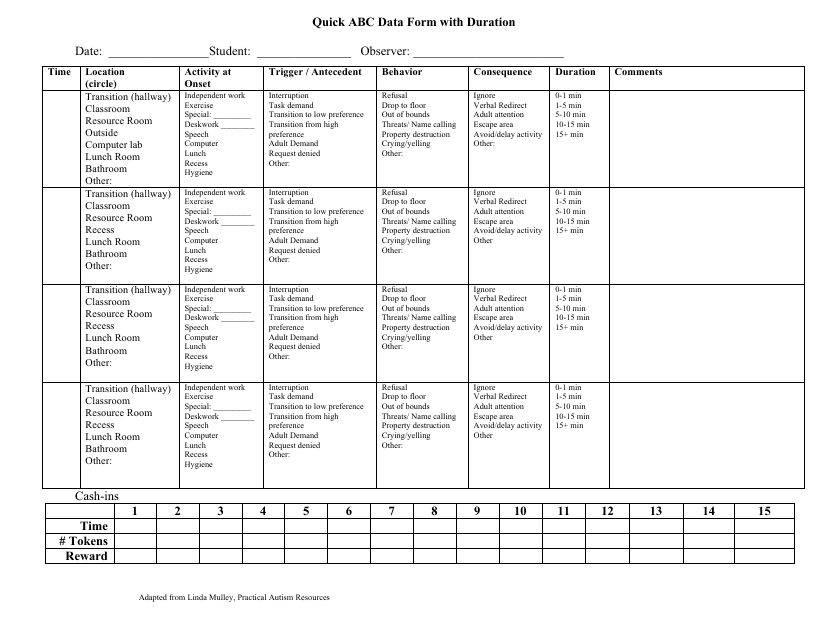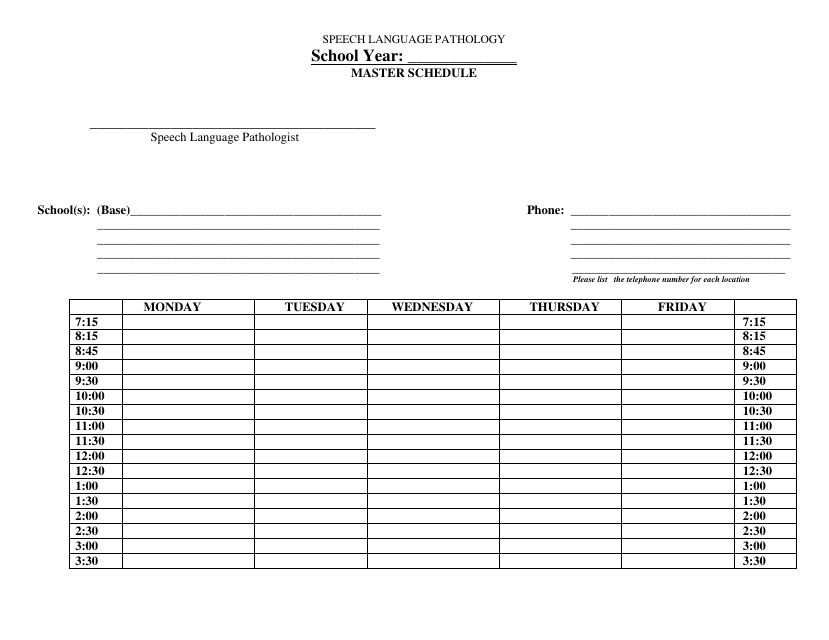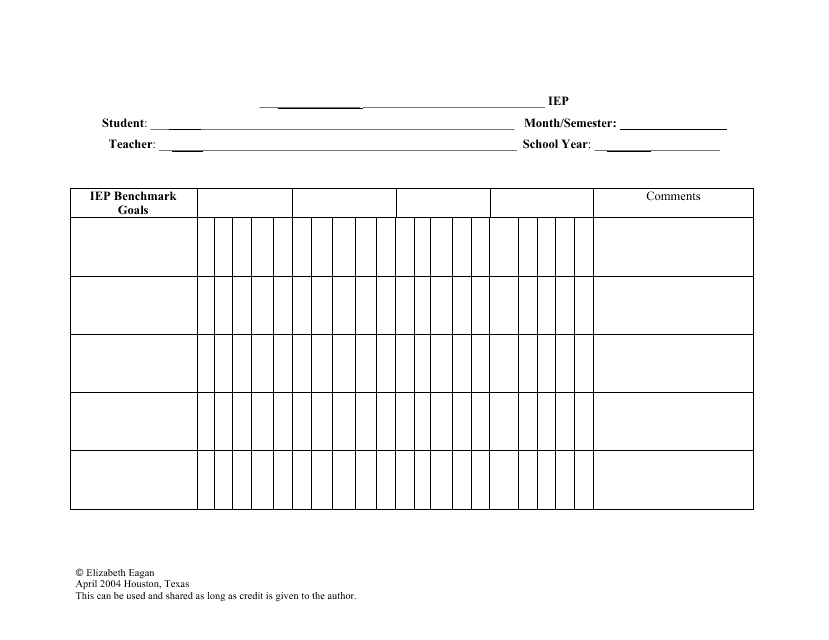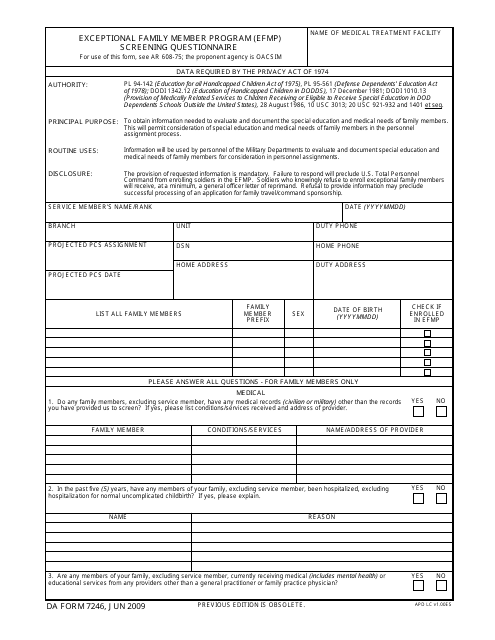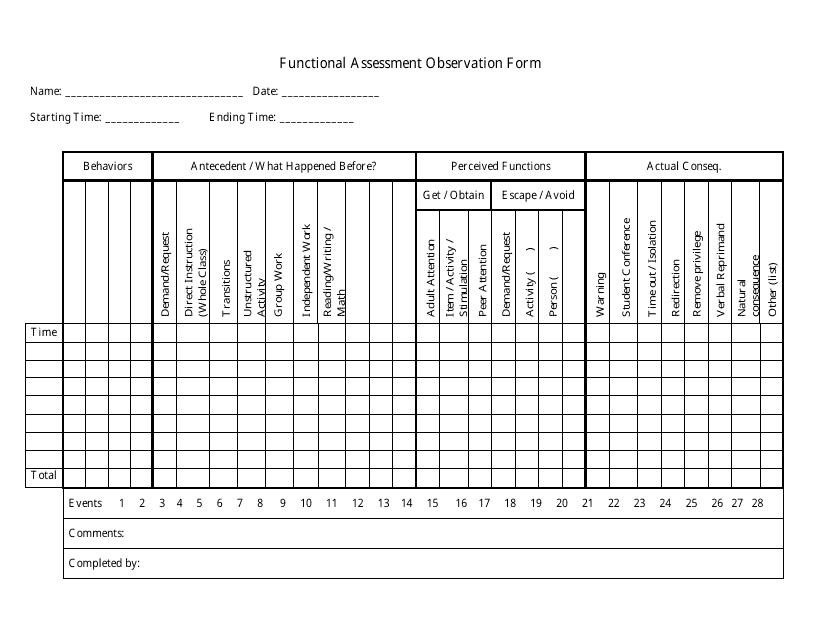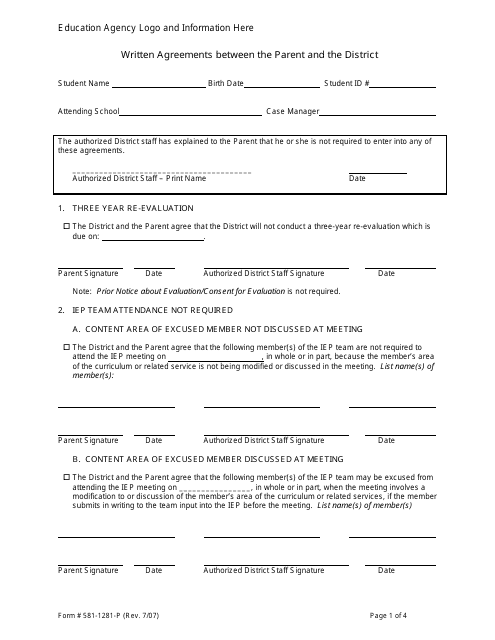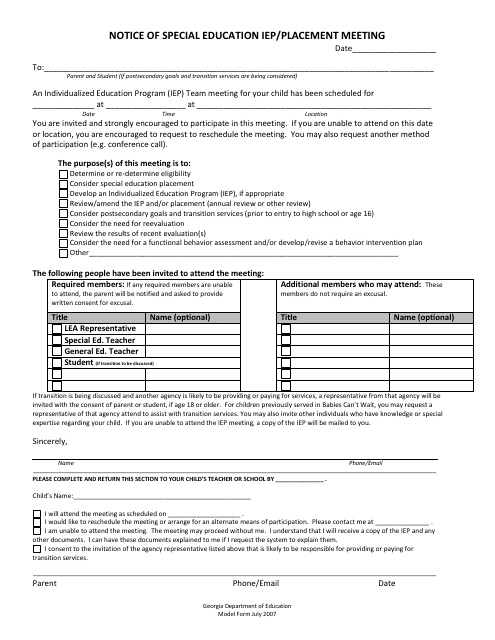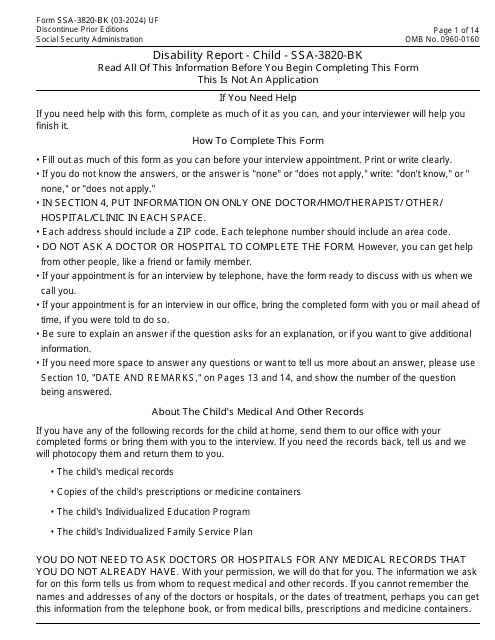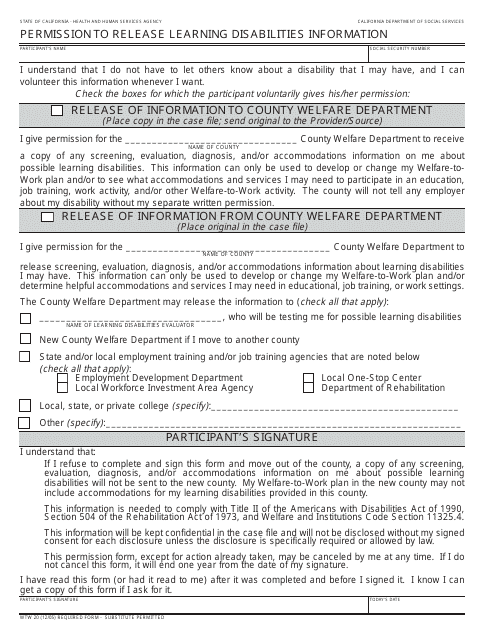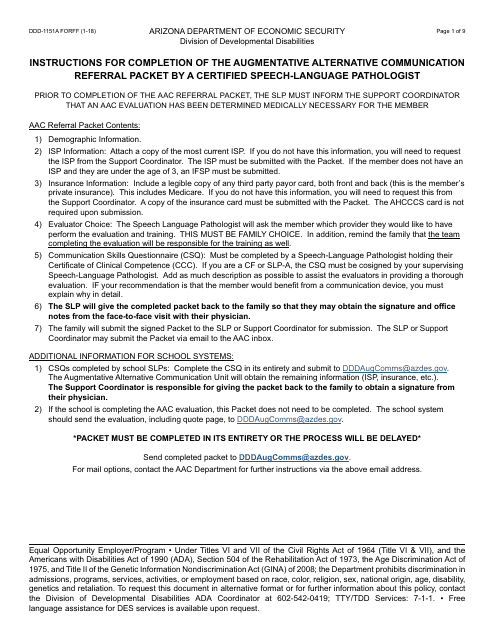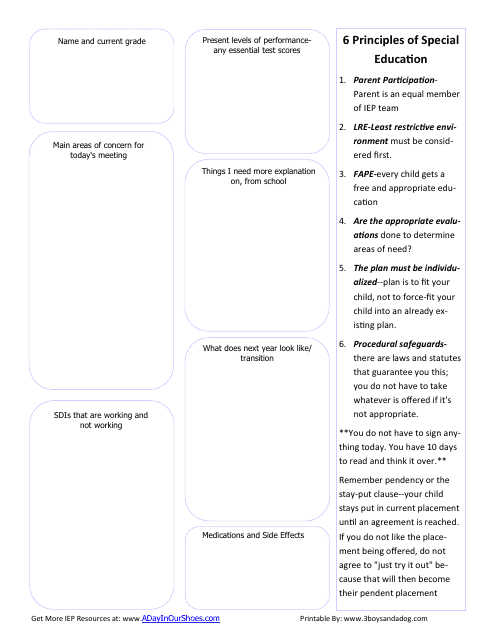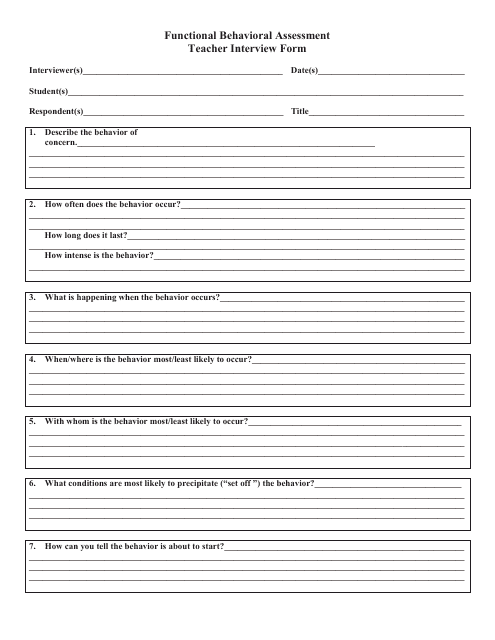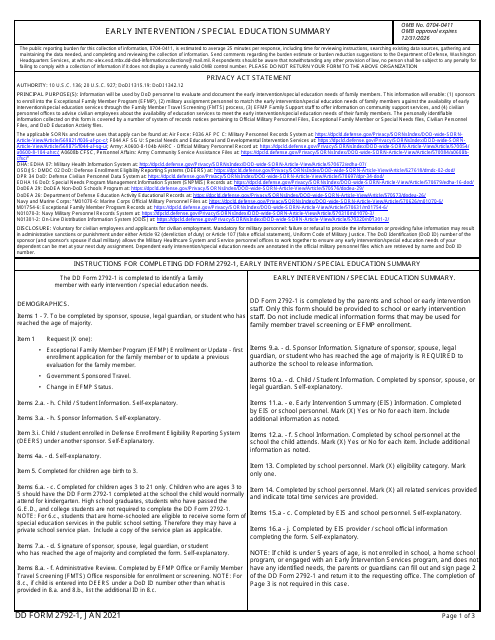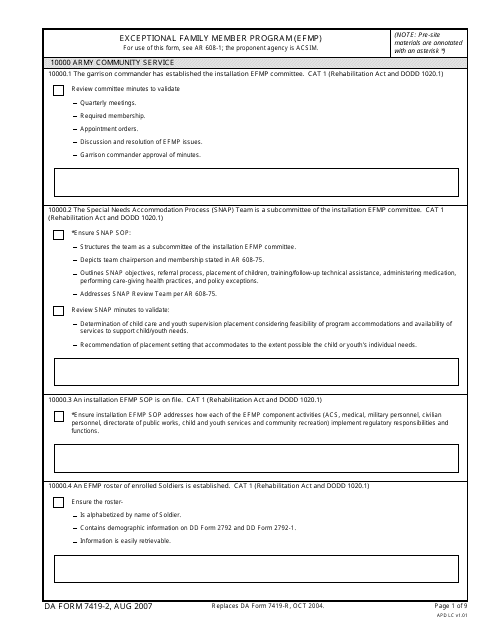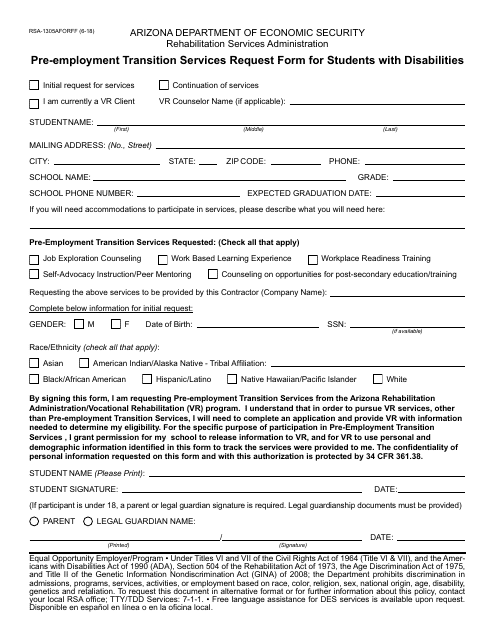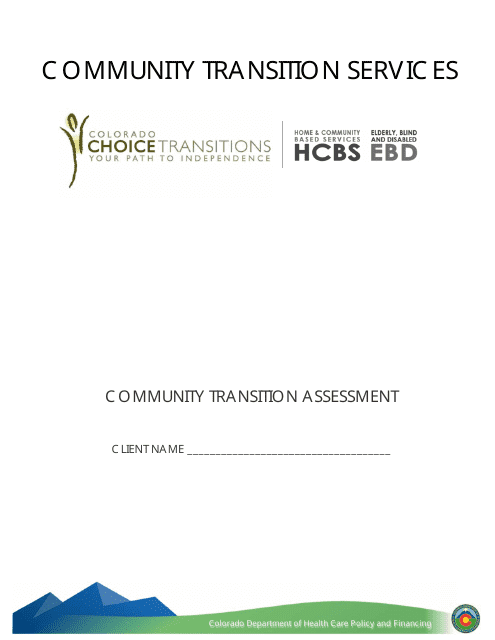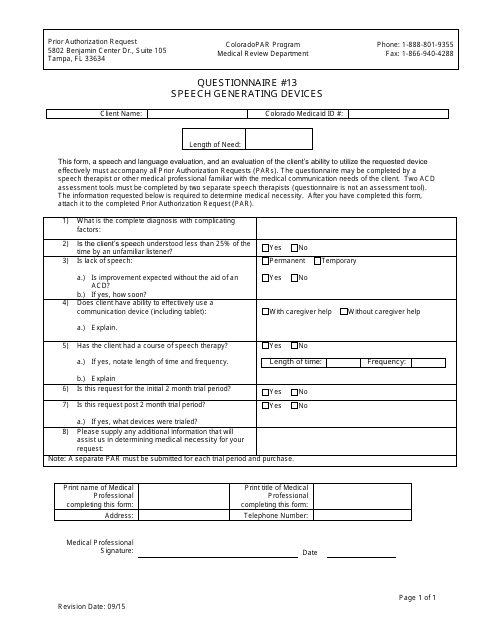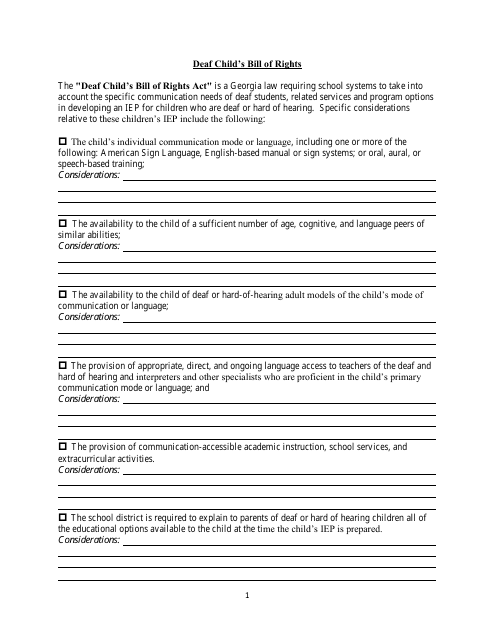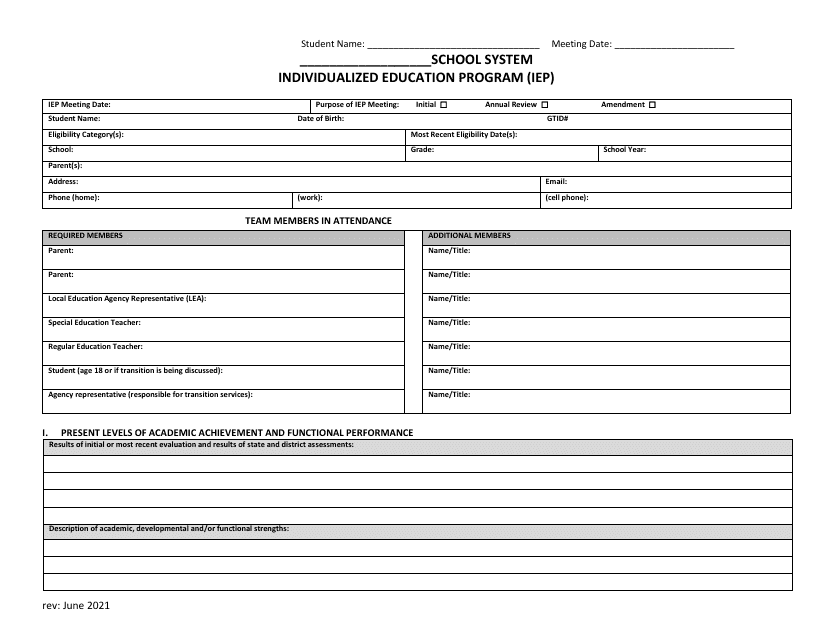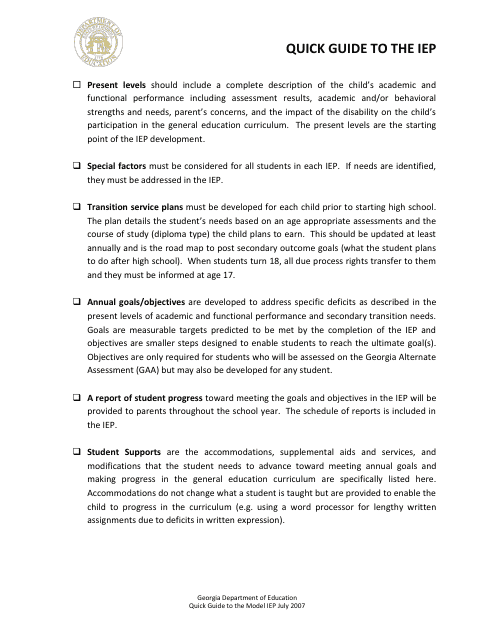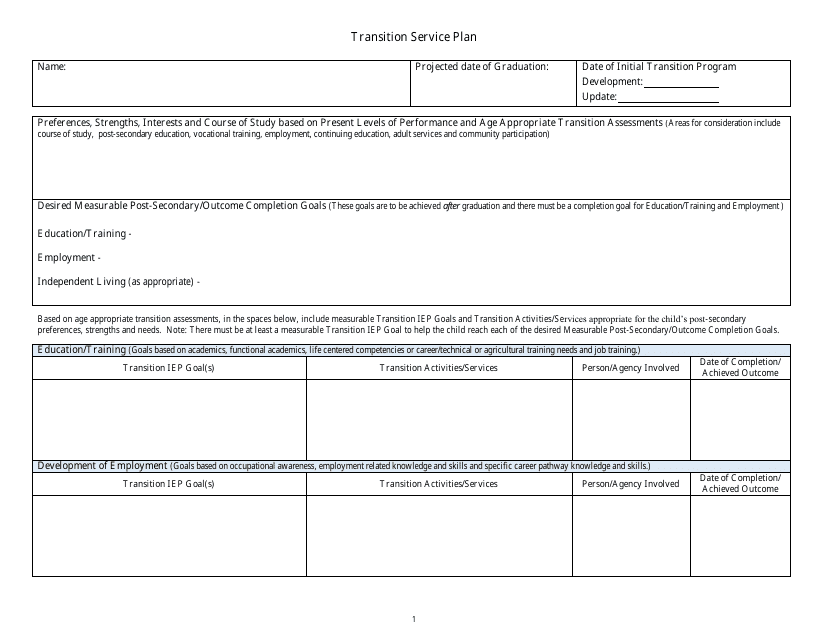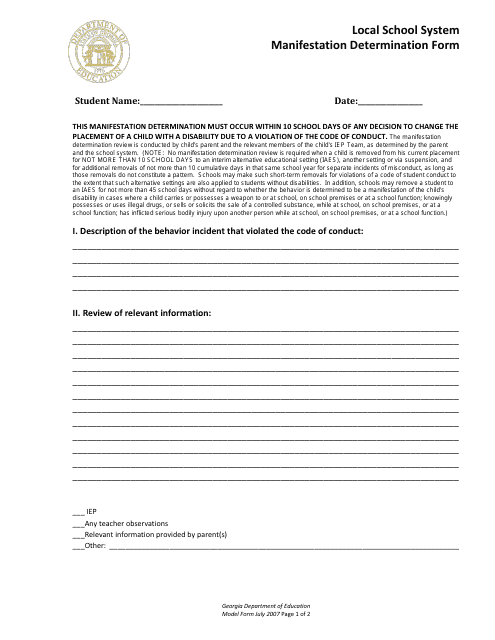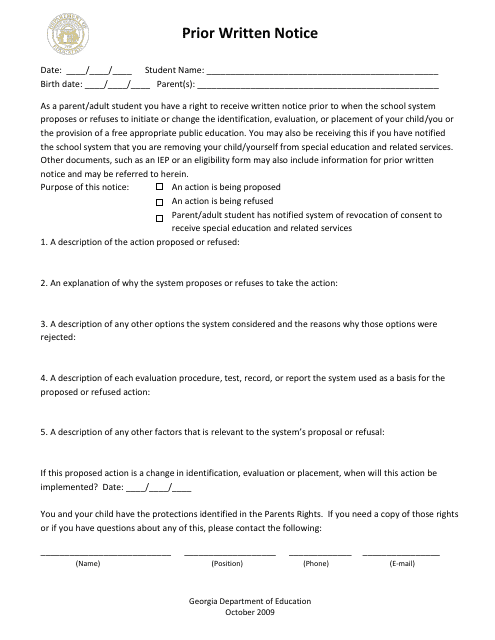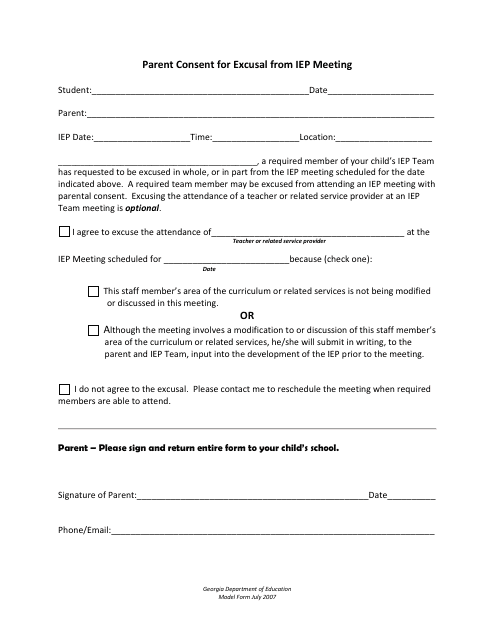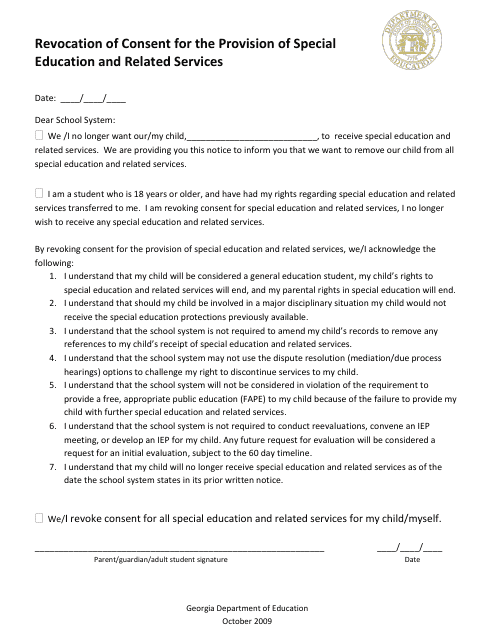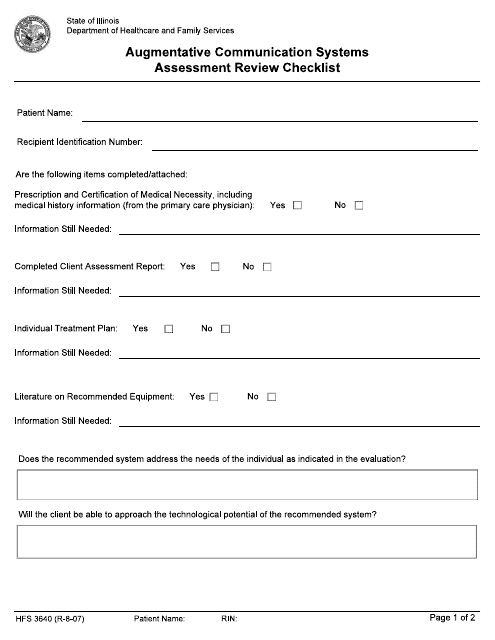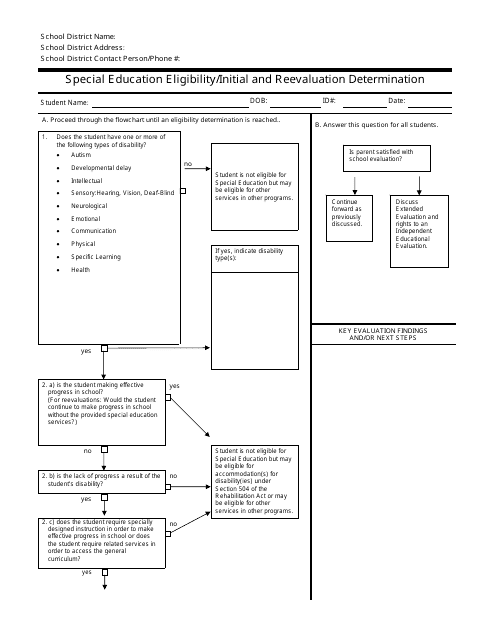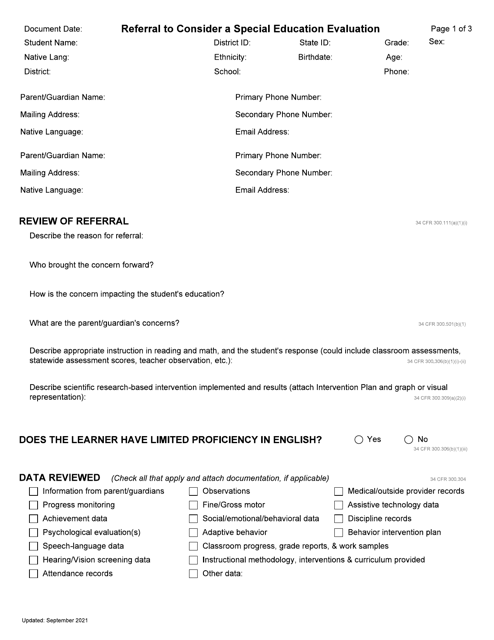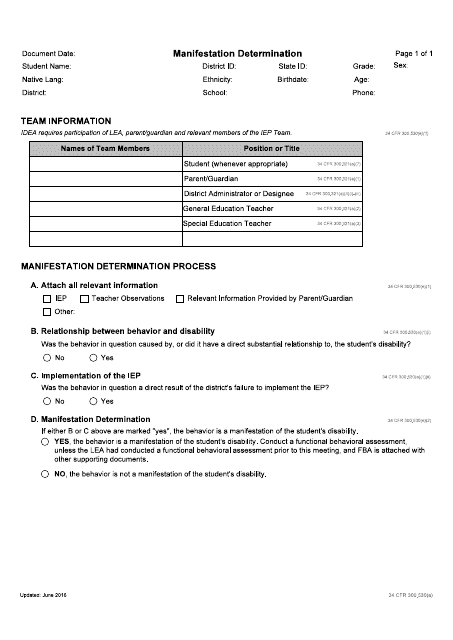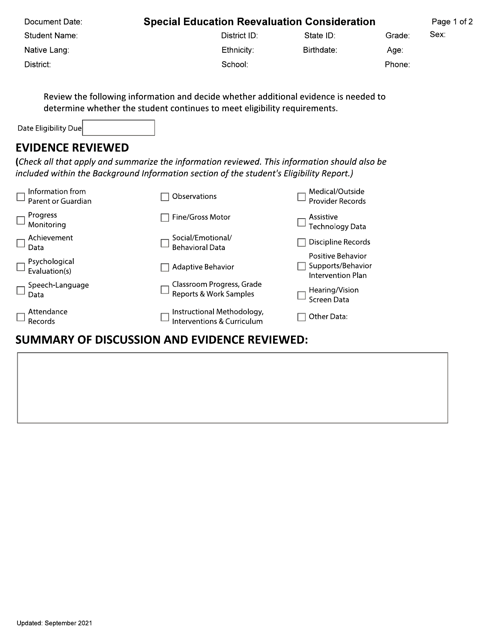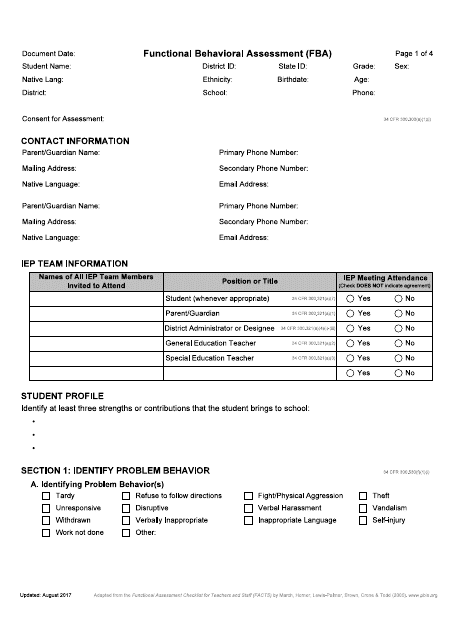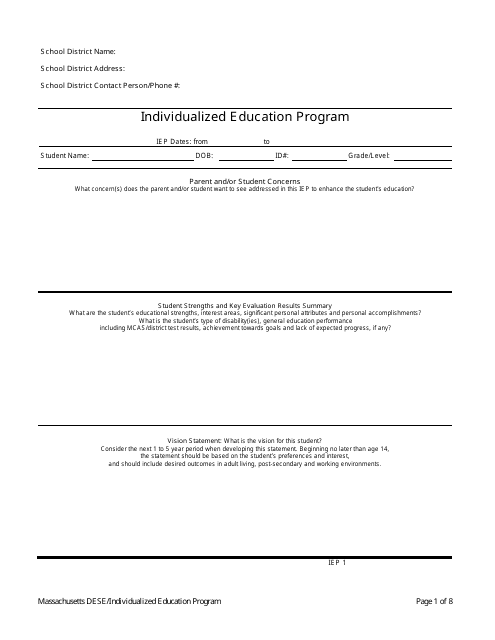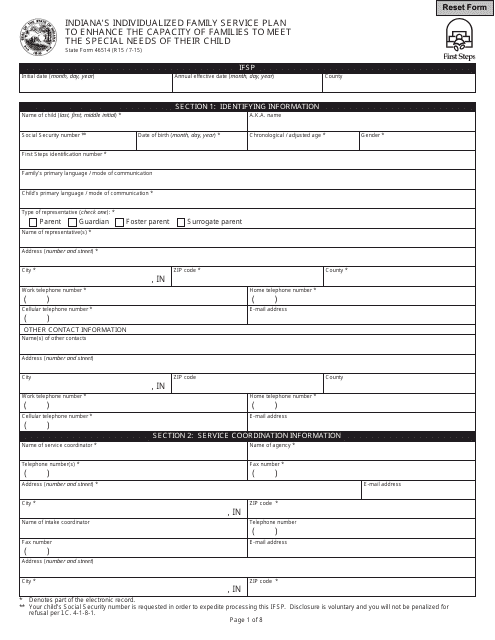Special Education Templates
Special Education Documentation and Forms
Welcome to our comprehensive collection of special education documents and forms. Whether you are a parent, teacher, or administrator, our extensive selection of documents will help you navigate the world of special education and ensure that every child receives the support they need to thrive.
Our special education documents cover a wide range of topics and situations. From Individualized Education Program (IEP) forms, referral and conference decision forms, to meeting notification letters and request for IEP team meeting facilitation forms, we have everything you need to effectively communicate and document the special education process.
At Templateroller.com, we understand the importance of clear and accurate documentation in special education. Our documents are specifically designed to meet the requirements and guidelines set by state education departments. Whether you are located in Missouri, Ohio, Arkansas, Idaho, or any other state, our collection includes forms that are tailored to your specific jurisdiction.
We strive to make the special education documentation process as easy and user-friendly as possible. Our templates and forms are intuitive and straightforward to use, making it simple for parents, teachers, and administrators to complete and submit the necessary paperwork.
By utilizing our special education documentation and forms, you can ensure that all legal and procedural requirements are met, providing the best possible support and services for children with special needs. Our collection is regularly updated to reflect the latest changes in special education laws and regulations, so you can trust that our documents are current and compliant.
Don't let the paperwork overwhelm you. Streamline your special education documentation process with our comprehensive collection of documents and forms. Browse our library today and empower yourself with the tools to advocate for the educational rights of children with special needs.
Documents:
336
This form is used for conducting a Functional Behavioral Assessment (FBA) in Broward County, Florida. FBA is a process of gathering information and analyzing behavior to identify the underlying causes and develop strategies for improving behavior.
This form is used for documenting participation in the Individualized Education Program (IEP) in the state of Alabama. It helps track the involvement of parents, teachers, and other relevant parties in the decision-making process for a student's special education needs.
This document is a checklist template used for Individualized Education Program (IEP) forms. It helps ensure that all necessary components are included in the IEP form.
This form is used for conducting a Functional Behavioral Assessment (FBA) to understand the reasons behind someone's challenging behavior. It helps identify triggers, antecedents, and consequences that may be influencing the behavior.
This document is a template for the Multidisciplinary Team Evaluation Report specifically designed for students with speech impairments or disfluency in the South Bend Community School Corporation. It helps the team gather and evaluate information about the student's needs and develop an appropriate education plan.
This document is a template used by the South Bend Community School Corporation for recording appointments related to Individualized Education Programs (IEPs).
This Form is used for quickly collecting ABC data with duration.
This document is a template for scheduling speech language pathology therapy sessions at a school. It helps organize and plan therapy sessions for students with communication impairments.
This document is a template for an Individualized Education Program (IEP) progress chart. It helps track the progress of a student with special needs towards their educational goals.
This form is filed when applying for the Exceptional Family Member Program (EFMP). This form serves as a summary of health condition and needs of that family member and plays a role in the personnel assignment process.
This document is used for observing and assessing the functional abilities of an individual. It helps in understanding their strengths, weaknesses, and areas of improvement.
This Form is used for creating written agreements between the parent and the district in Oregon.
This document is used to inform parents about a special education Individualized Education Program (IEP) and placement meeting in Georgia (United States). It provides details about the meeting agenda, participants, and objectives.
This document provides templates for tracking imitation skills in the ABLLS-R assessment for individuals with autism.
This Form is used for obtaining permission to release information about learning disabilities in California.
This form is used for referring individuals who may benefit from Augmentative Alternative Communication (AAC) in the state of Arizona. The AAC referral packet includes necessary documentation for assessment and intervention.
This form is used to record the results of an Individualized Education Program (IEP) meeting. An IEP is a written education plan designed for public school students who need special education.
This Form is used for conducting a teacher interview to gather information for a functional behavioral assessment. It helps identify the causes and triggers of a student's challenging behavior in order to develop effective strategies and supports.
This form is used to enroll in Exceptional Family Member Program (EFMP) and to record special educational needs of a dependent child from birth through the age of 21 whose health condition requires special educational services.
This Form is used for Exceptional Family Member Program (EFMP) in the military. It helps identify and support family members with special medical or educational needs.
This form is used for requesting pre-employment transition services for students with disabilities in Arizona.
This form is used for accessing community transition services in the state of Colorado. It provides information and assistance for individuals transitioning out of institutions into community-based care and support.
This document is a questionnaire related to speech generating devices in the state of Colorado. It is used to gather information about the use and functionality of these devices.
This document outlines the rights of deaf children in Georgia, United States. It aims to ensure equal opportunities and accommodations for deaf children in education and other areas of life.
This guide provides a brief overview of the Individualized Education Program (IEP) in Georgia for children with disabilities. It explains the purpose of an IEP, the process for developing one, and the rights and responsibilities of parents and schools. It also offers tips and resources to help parents navigate the IEP process effectively.
This document outlines the transition services for students with disabilities in Georgia, providing a plan for their smooth transition from high school to post-secondary education or employment.
This Form is used for determining if a student's behavior is related to their disability in the local school system in Georgia.
This Form is used for providing written notice of important information or changes regarding special education services in Georgia.
This document is used for parents in Georgia to provide their consent for their child to be excused from an IEP meeting.
This document is used for revoking consent for the provision of special education and related services in the state of Georgia, United States. It allows individuals to withdraw their agreement for receiving special education services.
This document is a checklist used in Illinois to review and assess augmentative communication systems. It helps evaluate the effectiveness of these systems in aiding communication for individuals with disabilities.
This form is used for determining special education eligibility and conducting initial and reevaluation assessments in the state of Massachusetts.
This form is used for conducting a manifestation determination review in the state of Idaho. It helps in determining if the behavior of a student with a disability is a manifestation of their disability or if it was a result of other factors.
This document explains the process of conducting a Functional Behavioral Assessment (FBA) in the state of Idaho. It is used to evaluate an individual's behavior in order to develop a plan for addressing challenging behaviors in a school or educational setting.
This document is used for creating an individualized education program (IEP) for students with disabilities in Massachusetts. It outlines the educational goals, accommodations, and services needed to support the student's learning and development.
This form is used in Indiana to create an Individualized Family Service Plan (IFSP) for children with special needs. The purpose is to enhance the capacity of families to support their children's specific needs.

